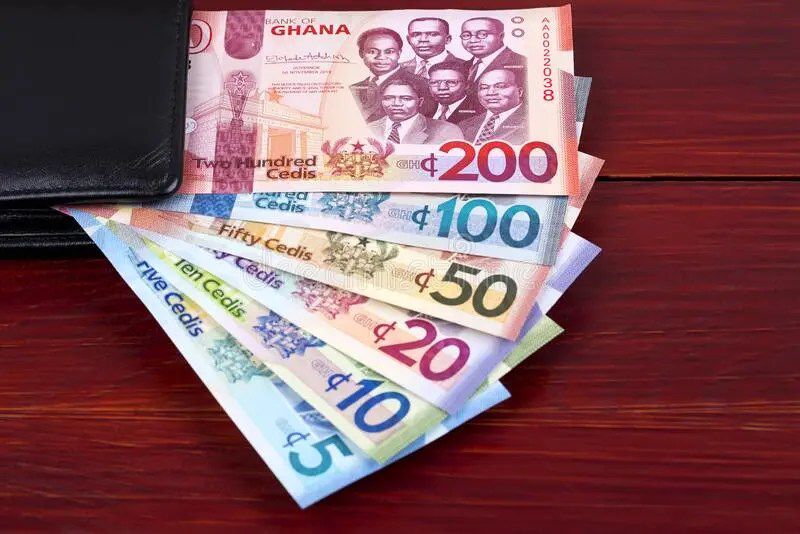The Ghanaian Cedi’s Performance Against Major Currencies: A Detailed Analysis
The Ghanaian cedi exhibited a slight appreciation against the US dollar on Friday, February 7, 2025. Data from Cedirates.com indicates a buying rate of GHS15.25 per dollar and a selling rate of GHS15.73, reflecting a 1 pesewa increase in both rates compared to the previous day’s averages. This marginal strengthening of the cedi against the dollar suggests a positive, albeit small, shift in the currency market dynamics. At forex bureaus, the exchange rates were slightly higher, with a buying rate of GHS15.50 for dollars and a selling rate of GHS15.90. This difference reflects the typical spread between interbank and retail exchange rates.
The interbank market, where financial institutions trade currencies, displayed even tighter spreads. The cedi traded at GHS15.44 for buying dollars and GHS15.46 for selling. This minimal difference signifies the higher efficiency and liquidity of the interbank market compared to the retail market. These figures reveal a nuanced picture of the cedi’s performance, with varying rates across different market segments. The appreciation, even by a small margin, could be interpreted as a positive sign for the Ghanaian economy, potentially signifying increased investor confidence or improved trade balances.
Against the British pound, the cedi traded at an average buying rate of GHS18.51 and a selling rate of GHS19.62. On the Bank of Ghana interbank market, the pound’s selling rate was slightly lower at GHS19.21. This disparity again highlights the difference between retail and interbank exchange rates. Similarly, the euro traded at an average buying rate of GHS15.74 and a selling rate of GHS16.42. The Bank of Ghana’s interbank market recorded a euro selling rate of GHS16.03. These exchange rate fluctuations are influenced by various factors, including international market trends, local economic conditions, and supply and demand dynamics.
Money transfer operators, such as LemFi and Afriex, offered competitive rates for remittances from the US and the UK to Ghana. For dollar transfers, LemFi provided a rate of GHS15.30 per dollar, while Afriex offered GHS15.39. These rates are often more favorable than those offered by traditional banks or money transfer agents, making them attractive options for individuals sending money to Ghana. Similarly, for pound transfers, LemFi and Afriex provided rates of GHS19.00 and GHS19.45, respectively. These specialized services cater to the needs of the diaspora population and contribute significantly to the flow of remittances into the Ghanaian economy.
For euro transfers, Afriex offered a rate of GHS16.03 per euro, while LemFi provided a slightly lower rate of GHS15.85. These competitive rates further demonstrate the dynamism of the remittance market and offer consumers various options for sending money internationally. The prevalence of digital money transfer services reflects the increasing adoption of technology in financial transactions and the demand for efficient and cost-effective transfer solutions.
Digital subscription payments for services like Netflix, Spotify, and Apple Music, when made using Visa and Mastercard, incurred an exchange rate of GHS16.53 per dollar. This rate is generally higher than the interbank or money transfer operator rates, reflecting the fees and charges associated with international card transactions. Understanding these different exchange rates is crucial for individuals and businesses engaging in international transactions. Making informed decisions about where to exchange currency or send money can result in significant cost savings.
Furthermore, the slight appreciation of the cedi against the dollar could have positive implications for Ghana’s import-dependent economy. A stronger cedi could lead to lower import costs, which could translate into lower prices for consumers and reduced inflationary pressures. However, it is essential to note that exchange rate fluctuations are complex and influenced by multiple factors, and a single day’s movement does not necessarily indicate a sustained trend.
The varying exchange rates across different market segments emphasize the importance of comparing rates and choosing the most favorable option depending on the specific transaction. Consumers and businesses should actively seek out the best rates available to minimize transaction costs and maximize value. Moreover, staying informed about currency market trends and economic developments can help individuals and businesses make informed decisions about international transactions.
In conclusion, the Ghanaian cedi demonstrated a slight appreciation against the US dollar on February 7, 2025, while the exchange rates against the British pound and the euro remained relatively stable. The varying rates across different market segments highlight the importance of comparing rates and choosing the most cost-effective option for international transactions. The competitive rates offered by money transfer operators reflect the growing demand for efficient and affordable remittance services. Continued monitoring of currency market trends and economic developments will be essential for navigating the complexities of international finance.


